- Home
- Fay Weldon
Letters to Alice Page 3
Letters to Alice Read online
Page 3
Those are only the ones who stand behind. More real and yet more alarming figures stand in front. (‘And those behind cry “Forward”, and those in front cry “Back!”’) Critics, colleagues, friends whispering insults and exhortations, bearing tales of loss and envy, and a bank manager or so, too, rubbing his hands; and if you’re me, children, breaking through the thin walls between idea and experience, the concentrated world of invention and the more diffuse one of reality, saying when is supper ready? Who’s going to take me to school? And if all else fails, why then the cat will come and sit on the manuscript. (The cat, I do believe, is the Familiar of the Angel of the House.) Out of all this busy-ness in an empty room — where the writer sits allegedly alone with pen and paper (and not, Alice, a word-processor) comes the energy of creation, comes the House of the Imagination, with its charming rooms, its exciting corridors; its locked doors, with the keys hanging where least expected, waiting to be opened by the visitor.
I do believe it is the battle the writer wages with the real world which provides the energy for invention. I think Jane Austen waged a particularly fearful battle, and that the world won in the end and killed her: and we are left with the seven great novels. I know you’ve been told six. But she did write another, Lady Susan, a diverting, energetic and excellent novel, when she was very young, at about the same time as she wrote the comparatively tedious and conventional Sense and Sensibility (please don’t read it first). She put Lady Susan in a drawer. She did not attempt to have it published; nor, later, did her family. My own feeling is that they simply did not like it. They thought it unedifying and foolish, and that wicked adventuresses should not be heroines, and women writers should not invent, but only describe what they know. They had, in fact, a quite ordinary and perfectly understandable desire to keep Jane Austen respectable, ladylike and unalarming, and Lady Susan was none of these things.
I will write more of this later. You must understand, I think, the world into which Jane Austen was born. I do not think the life or personality of writers to be particularly pertinent to their work. I know many writers (especially poets) who are boring and conventional as people, yet who produce the most lively and un-ordinary work, and some very intelligent and entertaining writers (as people) who produce work that is singularly dreary.
But I do think the times in which writers live are important. The writer must write out of a tradition — if only to break away from it. You must know how to read a novel, for example, before setting out to write one; you must comprehend that they have stories and characters and plots and conversations, and that all these must work to a given end. You must understand that they are meant to be read, and that meaning must be absorbed through the eye, and that the ear cannot help. You could, I suppose, work these things out from first principles: but the novel form has developed through centuries and requires a reader more or less as cultivated as the writer. He, or she, writes out of a society: links the past of that society with its future; he or she can demonstrate to the reader the limitations of convention, as Jane Austen did in Northanger Abbey, or Thackeray in Vanity Fair. The reader may well have mistaken the fictional convention for life itself, so severe is the social indoctrination to which we are all subjected, whenever and wherever we live, and needs to be reminded from time to time that novels are illusion, not reality. Writers seem more conscious of what is going on than those many readers who will quarrel with the content of a novel, but not doubt the whole concept of the novel.
I have no doubt, Alice, that you have a set of unquestioned beliefs. I could even give you a brief run-down of your opinions, without ever having met you. You believe, for example:
1. It is better to be good than bad.
2. It is better to be nice than nasty.
3. It is better to be sexually experienced than innocent.
4. Knowledge is good and ignorance bad.
5. White sugar is bad for you, brown isn’t.
6. Babies should be picked up when they cry.
7. The strong have a duty to the weak.
8. Cinema is a Good Thing and TV bad.
9. Smoking damages your health.
10. The BBC has the best TV service in the world.
— and so on and so forth. You say, but of course, these things are observably true. This is the world we live in, this is life. But if you investigate yourself, observe what lies beneath the lip service you pay to these notions — for notions they are — you may well discover a layer of yourself that believes quite the opposite. Then what will you do? Stay quiet, I imagine. It takes great courage and persistence to swim against the stream of communal ideas. The stream itself is so much part of daily existence, it is hard to see it for what it is, or understand that it flowed in quite a different direction in other decades.
Jane Austen concerned herself with what to us are observable truths, because we agree with them. They were not so observable at the time. We believe with her that Elizabeth should marry for love, and that Charlotte was extremely lucky to find happiness with Mr Collins, whom she married so as not, in a phrase dating from that time, to be left on ‘the shelve’. She believed it was better not to marry at all, than to marry without love. Such notions were quite new at the time. It surprises us that in her writing she appears to fail to take the pleasures of sex into account, but that was the convention at the time: we disapprove, where her society most approves. She is not a gentle writer. Do not be misled: she is not ignorant, merely discreet: not innocent, merely graceful. She lived in a society which assumed — as ours does — that its values were right. It had God on its side, and God had ordained the ranks of His people; moreover, He had made men men and women women, and how could a thing like that be changed? It is idle to complain that Jane Austen lacked a crusading zeal. With hindsight, it is easy to look at the world she lived in, and say she should have. What she did seems to me more valuable. She struggled to perceive and describe the flow of beliefs that typified her time, and more, to suggest for the first time that the personal, the emotional, is in fact the moral — nowadays, of course, for good or bad, we argue that it is political. She left a legacy for the future to build upon.
I want you to conceive of England, your country, two hundred years ago. A place without detergents or tissues or tarmaced roads or railway trains, or piped water, let alone electricity or gas or oil; where energy (what a modern term) was provided by coal, and wood, and the muscle of human beings, and that was all. Where the fastest anyone could cover the ground was the speed of the fastest horse, and where, even so, letters could be posted in London one evening and be delivered in Hereford the next morning. Because people were so poor — most people — they would run, and toil, and sweat all day and all night to save themselves and their children from starvation. Rather like India is today. If you were a child and your parents died, you lived on the streets: if you were a young woman and gave birth out of wedlock you would, like as not, spend the rest of your life in a lunatic asylum, classified as a moral imbecile. If you tried to commit suicide to save yourself from such a life, you would be saved, and then hanged. (These last two ‘ifs’, incidentally, applied as recently as fifty years ago.) If you stole anything worth more than £5 you could be hanged, or transported to a penal colony for life. If it was under £5 there were long, harsh prison sentences in unspeakable prisons, and the age of criminal liability was seven. No casual vandals or graffiti writers then.
Child, you don’t know how lucky you are. If you cheat on the Underground they give you a psychiatrist. If you break a leg, there’s someone to mend it. If you have a cold in the nose, you use a tissue and flush it down the WC: Jane Austen used a pocket handkerchief, and had a maid to boil it clean. Fair enough, if you’re Jane Austen, but supposing you were the maid? You would be working eighteen hours a day or so, six-and-a-half days a week, with one day off a month, and thinking yourself lucky.
If you weren’t the maid, you might well be working on the land. Well into the nineteenth century, agriculture was the lar
gest single source of employment for women. And do not think for one moment women of the working classes did not work, or had husbands able and willing to support them. A young country girl (and only fifty per cent of the population lived in towns) would be on the farm, cooking, cleaning, washing clothes — and carrying the water, and chopping the wood and lighting the boiler to heat it — feeding animals, milking cows, planting, gleaning, gathering hay. If you worked in the dairy you would at least have the pleasure of developing skills, and would be better paid, but your day would start at 3 a.m. and end in the late evening. Your reward would be in heaven. The Bible rather rashly claimed that that was where the poor went, thus giving the rich every justification for preserving their poverty. No one’s health was good — TB afflicted a sizeable proportion of the population. If you, as a young woman, fled to the city to improve your life, you could, with difficulty, become an apprentice and learn the traditional women’s trades of millinery, embroidery, or seaming; or you could be a chimney sweep (from the age of six) or you could become a butcher (a nasty trade, despised by men) or a prostitute — 70,000, they reckoned, in London at the turn of the century, out of a population of some 900,000.
Or you could marry.
The trouble was that you had to be able to afford to marry. You were expected to have a dowry, provided by your parents or saved by yourself, to give to your husband to offset your keep. For this great reason, and a variety of others, only thirty per cent of women married. Seventy per cent remained unmarried. It was no use waiting for your parents to die so that you could inherit their mansion, or cottage, or hovel, and so buy yourself a husband — your parents’ property went to your brothers. Women inherited only through their husbands, and only thus could gain access to property. Women were born poor, and stayed poor, and lived well only by their husbands’ favour.
The sense of sexual sin ran high: the fear of pregnancy was great — you might well estimate that half the nation’s women remained virgins all their lives. Does that thought alarm and shock you, Alice? Probably, and I dare say rightly. Savage tribes in far-off Africa would never have tolerated it for one moment.
So to marry was a great prize. It was a woman’s aim. No wonder Jane Austen’s heroines were so absorbed by the matter. It is the stuff of our women’s magazines but it was the stuff of their life, their very existence. No wonder Mrs Bennet, driven half-mad by anxiety for her five unmarried daughters, knowing they would be unprovided for when her husband died, as indeed would she, made a fool of herself in public, husband-hunting on her girls’ behalf. Politeness warred, as always, with desperation. Enough to give anyone the vapours!
Women survived, in Jane Austen’s day, by pleasing and charming if they were in the middle classes, and by having a good, strong working back if they were of the peasantry. Writing was, incidentally, one of the very few occupations by which impoverished and helpless female members of the gentry could respectably — well, more or less — earn money. To be a governess was another, much fabled, occupation. Beautiful and talented governess, handsome scion of ancient housing, marrying where he loved and not where he ought…It was a lovely, if desperate, fantasy. (See Elizabeth and Darcy in Pride and Prejudice.)
The average age of puberty, incidentally, was later in their day than it is now. In 1750 we know it to have been between eighteen and twenty. General malnutrition and low female body weights were no doubt the cause. Marriage was later, too: on average between twenty-five and twenty-eight, though Jane Austen’s heroines seem to have started panicking in their early twenties. Lydia, in Pride and Prejudice, managed it at the age of sixteen, and shocked everyone by revealing everyone’s true feelings — trailing her hand with its new wedding-ring out of the carriage window as she rode triumphantly into town, so that everyone would know. Married! Jane Austen herself put on her cap when she was thirty. That is, she announced herself by her dress as out of the marriage market, now resigned to growing old with as much grace and dignity as she could muster. Thirty!
Once you were married, of course, life was not rosy. Any property you did acquire belonged to your husband. The children were his, not yours. If the choice at childbirth was between the mother or child, the mother was the one to go. You could not sue, in your own name. (By the same token at least you could not be sued.) He could beat you, if he saw fit, and punish your children likewise. You could be divorced for adultery, but not divorce him for the same offence. Mind you, divorce was not a way out of marital problems. Marriage was for ever. Between 1650 and 1850 there were only 250 divorces in England.
You put up with the sex life you had, and were not, on the whole, and in the ordinary ranks of society, expected to enjoy it. It tended to result, for one thing, in childbirth. Contraception was both wicked and illegal, against God’s law and the land’s. Abstinence was the decent person’s protection against pregnancy. There were, of course, then as now, libidinous sections of society, the wild young of the upper classes, and free thinkers, who saw sexual freedom as the path to political liberty: and, of course, there were married couples who did find a real and sensual satisfaction in each other — but this was a bonus, not something to be taken for granted: certainly nothing you could go to a Marriage Counsellor about.
The fact that there were 70,000 prostitutes in London in 1801, out of a female population of some 475,000, indicates that your husband at least would not be virginal on marriage. He would quite possibly be diseased. Venereal disease was common, and often nastily fatal.
Alice, by your standards, it was a horrible time to be alive. Yet you could read and read Jane Austen and never know it. And why should you? Novelists provide an escape from reality: they take you to the City of Invention. When you return you know more about yourself. You do not read novels for information, but for enlightenment. I don’t suppose Jane Austen thought particularly much about the ills of her society. All this, for her, was simply what the world was like. She would not get upset by it any more than you are upset by the satellites flying across your sky, or the missiles dotted here and there about the earth, pointing instant and ever-ready nuclear death at you and yours. That, you think, is just how it is. You can get used to anything; preferably by mentioning it as little as possible, and using the greater peril to intensify the smaller joy. And good for you!
Now, Alice, there you are, a typical young woman of the 1799s. We’re supposing you’re working on the land, and of peasant stock. You’ve scraped your dowry together and you’ve found your young (or old, often quite old!) man, and got yourself married. Your prime duty is to have children. The clergyman has told you so at the wedding ceremony. ‘Marriage is designed by God for the procreation of children…’ Everyone believes it. (If you turned out to be barren, that was a terrible disaster, not just personally but socially. It made you a non-woman. No infertility clinics then. Just the image of the barren fig tree, blasted by Jesus for what it couldn’t help.) But such disasters apart, you’re likely to be pregnant within a year of marriage and carry one child successfully to term every two years until the menopause. This seems to be the rate which nature, uninterfered with, decrees for human reproduction. Fifty per cent of all the babies would die before they were two: from disease due to malnutrition, ignorance, or infection. Every death would be the same misery it is today. Your many pregnancies would be plentifully interrupted by miscarriages, and one baby in every four would be still-born. Midwives, mercifully, did not customarily allow imperfect babies to live, nor were they expected to. Child delivery was primitive and there were no analgesics. Child care was not considered a full-time job. Babies were swaddled and hung on pegs out of the way while mothers went on keeping the wolf from the door. If the mother’s milk failed, the babies would be fed on gruel, soaked into sacking and sucked out by the baby.
Your own chances of dying in childbirth were not negligible and increased with every pregnancy. After fifteen pregnancies (which meant something like six babies brought to term and safely delivered) your chances of dying were (Marie Stopes late
r claimed) one in two. Mrs Bennet, giving birth to Mary, must have been worried indeed. Her nerves were bad: she was considered ridiculous, poor thing, for saying so. (I take a very tender view of Mrs Bennet, more tender than her creator does. But I am looking at a society from the outside in, not the inside out.)
Jane Austen herself was the sixth child of a family of seven. Or eight, really. Her mother’s second child was epileptic, sent away from home — or presumably, simply not collected from the wet-nurse (more of this later) — and never mentioned again. An older brother, Edward, was reared in a family not his own, where there was more money and more time. Children, coming in large numbers to comparatively few households — as in Ireland today, where contraception is still disallowed — were quite frequently reared in homes better able to accommodate them than their own. Emma, in The Watsons, is brought up outside the family, and meets her sisters for the first time when she is a young woman.
Back to you, Alice, mother of six, aged thirty, with your backache and your varicose veins and your few teeth, carrying water from the village well for all your family’s needs, and water is about as heavy a soul’s task as you can get, and you have to choose if they’re going to be clean or you’re going to be ill — no, no, start again. I’ll elevate you to the gentry, lucky you.
You love your children but your husband owns them, and perhaps you do not love him. If you are unfaithful (and you have many servants and not all that much to do, and gentlemen do not often have occupations but live off inherited wealth and are about a lot of the time), he can take your children away from you, to punish you, and very well may. If you are a woman with energy and initiative and knowledgeable friends you will use a contraceptive, a sponge soaked in vinegar, attached to a ribbon. If it doesn’t work, there are back street abortionists a-plenty, and death a-plenty too. Mercury is a favourite abortifacient, and useful for curing venereal diseases. The trouble is, the doses that kill foetuses and spirochaete tend to kill their host as well. Oh, bad times! Your lover may, if sufficiently corrupt, use a condom, but the rubber is very thick, very heavy.

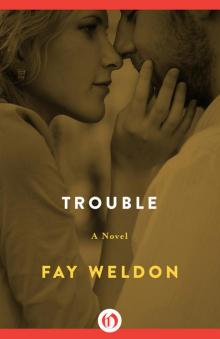 Trouble
Trouble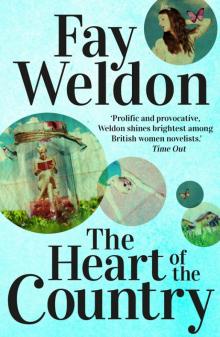 The Heart of the Country
The Heart of the Country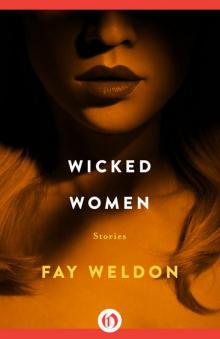 Wicked Women
Wicked Women Mischief
Mischief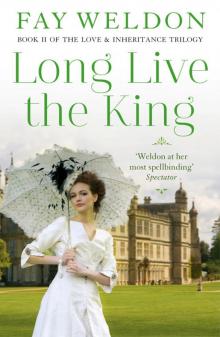 Long Live the King
Long Live the King Remember Me
Remember Me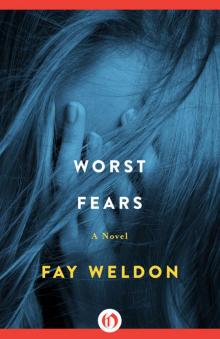 Worst Fears
Worst Fears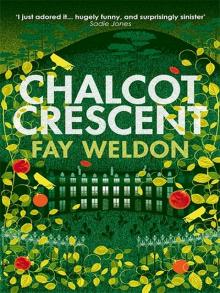 Chalcot Crescent
Chalcot Crescent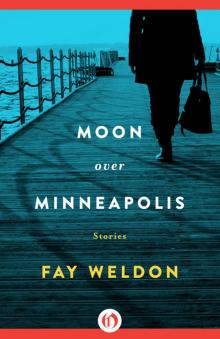 Moon Over Minneapolis
Moon Over Minneapolis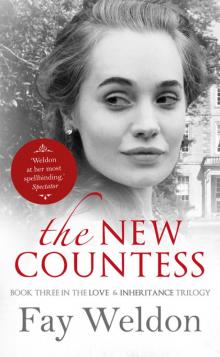 The New Countess
The New Countess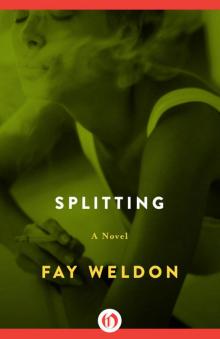 Splitting
Splitting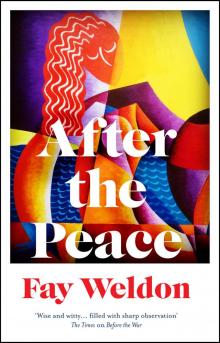 After the Peace
After the Peace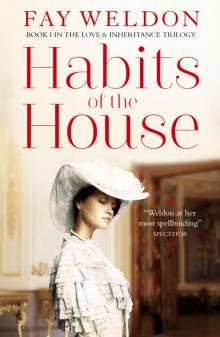 Habits of the House
Habits of the House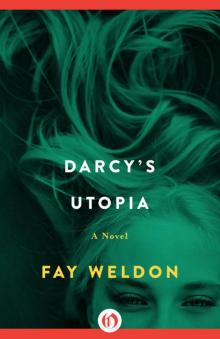 Darcy's Utopia
Darcy's Utopia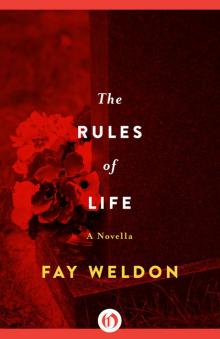 The Rules of Life
The Rules of Life Kehua!
Kehua!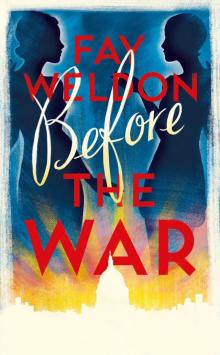 Before the War
Before the War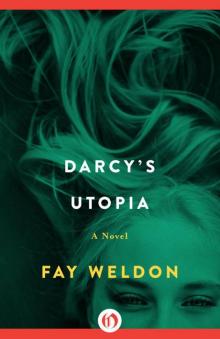 Darcy's Utopia: A Novel
Darcy's Utopia: A Novel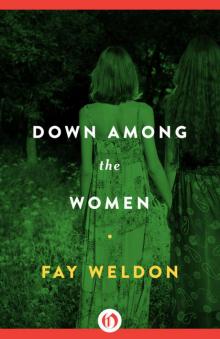 Down Among the Women
Down Among the Women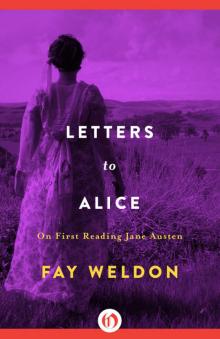 Letters to Alice
Letters to Alice 3 Great Historical Novels
3 Great Historical Novels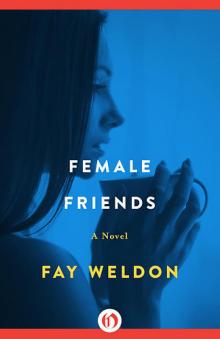 Female Friends
Female Friends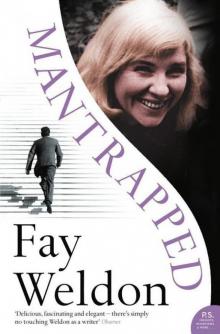 Mantrapped
Mantrapped The Bulgari Connection
The Bulgari Connection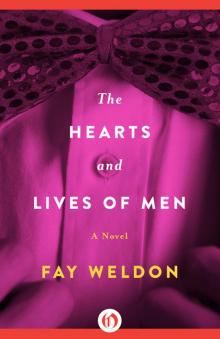 The Hearts and Lives of Men
The Hearts and Lives of Men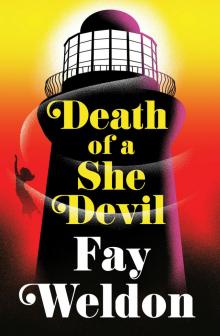 Death of a She Devil
Death of a She Devil